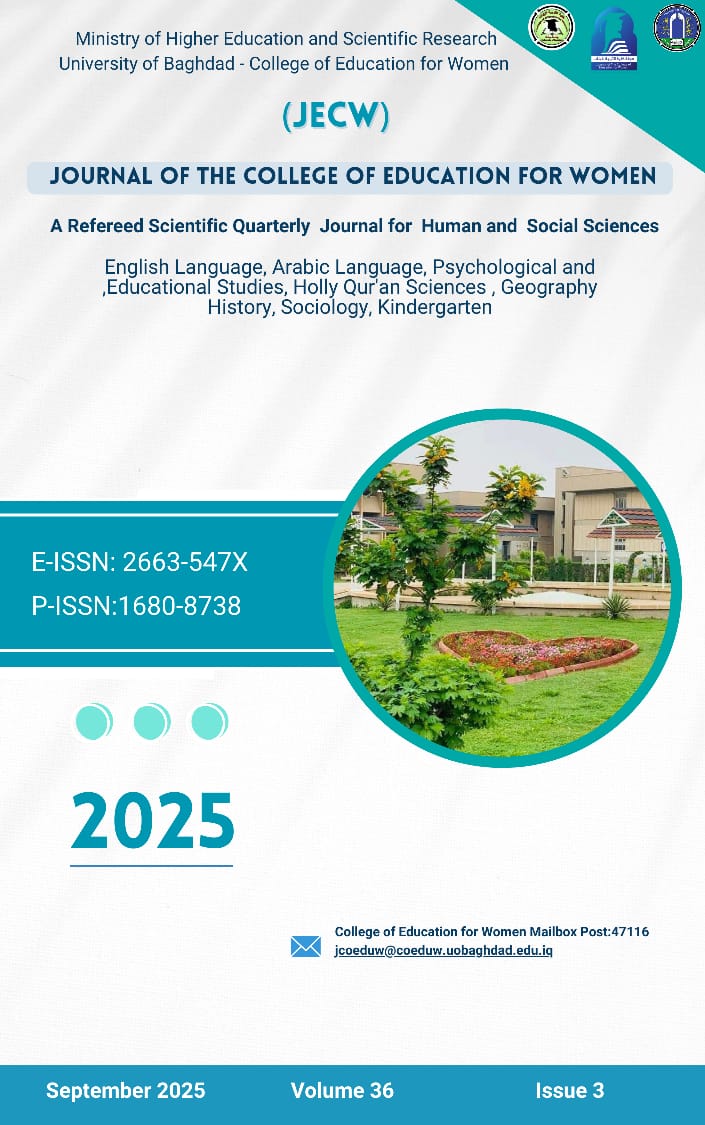The Effect of ESA Model on Secondary School Student’s Achievement in English
DOI:
https://doi.org/10.36231/coedw.v36i3.1858Keywords:
achievement, activate, engagement, ESA, secondary school, studyAbstract
English language has become an international language and a means of communication among people all over the world. EFL learners, particularly those who are in the earliest stages of language learning, find and face difficulties to understand spoken language and comprehending written texts. The inadequacy of traditional instructional approaches has prompted educational innovations in various places of the world. Educational innovations and renovations are necessary for education. Iraqi EFL students are less proficient and less advanced in their English language acquisition than students in neighboring countries for a variety of reasons, the primary one is the way English being taught. It appears that teachers use typical English teaching approaches, also learning is less successful when students are not emotionally invested in what is happening. One of the key goals and advantages of ESA (engage-study-activate) is the idea of involving the students. So, this study aims to show the effect of ESA model on second intermediate school students’ achievement in English. The quantitative data collected by selecting two groups randomly as experimental and control group and apply the ESA model on the experimental group. The two groups exposed for post-test to know the effect of ESA model on their achievement in English. The data analyzed by using SPSS v26 program. The results indicated that English achievement of the experimental group, which are taught by using ESA, is better than the control group, which are taught by using the traditional method.
Downloads
Published
Issue
Section
License
![]()
All articles published in Journal of College of Education for Women are licensed under a Creative Commons Attribution 4.0 International License.











